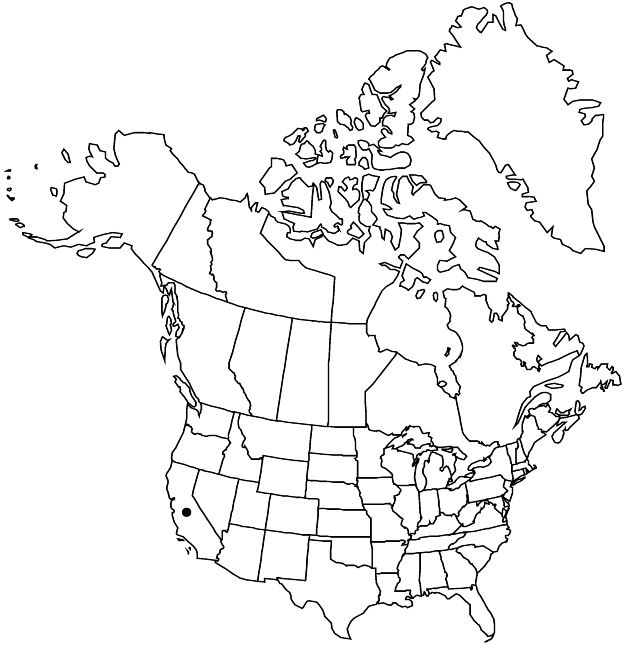Mentzelia eremophila
Phytologia 21: 281. 1971.
Plants candelabra-form, (7–)30–50(–60) cm. Basal leaves persisting; petiole present or absent; blade linear-lanceolate to linear, margins very deeply lobed, lobes slender. Cauline leaves: petiole absent; blade ovate-lanceolate to linear, to 15 cm, margins deeply to shallowly lobed or entire. Bracts green, ovate to lanceolate, 4.8–12.4 × 0.9–3.5 mm, width 1/8–1/2 length, not concealing capsule, margins usually entire, rarely 2-lobed. Flowers: sepals (7–)9–16 mm; petals yellow, 12–25 mm, apex acute or mucronate; stamens 20+, 3–10 mm, filaments monomorphic, filiform, unlobed; styles 7–15 mm. Capsules clavate, 19–40 × 2–3.5 mm, axillary curved to 270° at maturity, usually inconspicuously longitudinally ribbed. Seeds 30–60, in 2+ rows distal to mid fruit, tan, usually dark-mottled, usually irregularly polygonal, occasionally triangular prisms proximal to mid fruit, surface colliculate under 10× magnification; recurved flap over hilum usually present; seed coat cell outer periclinal wall domed, domes on seed edges less than 1/2 as tall as wide at maturity. 2n = 18.
Phenology: Flowering Mar–May.
Habitat: Rocky slopes, washes, canyons, creosote-bush scrub.
Elevation: 600–1300 m.
Discussion
Mentzelia eremophila is narrowly distributed in eastern Kern and northwestern San Bernardino counties. It is morphologically similar and closely related to M. nitens (J. M. Brokaw and L. Hufford 2010). However, M. eremophila generally has longer sepals, petals, and styles, and populations of M. nitens have not been found south of Inyo County in California.
Selected References
None.
